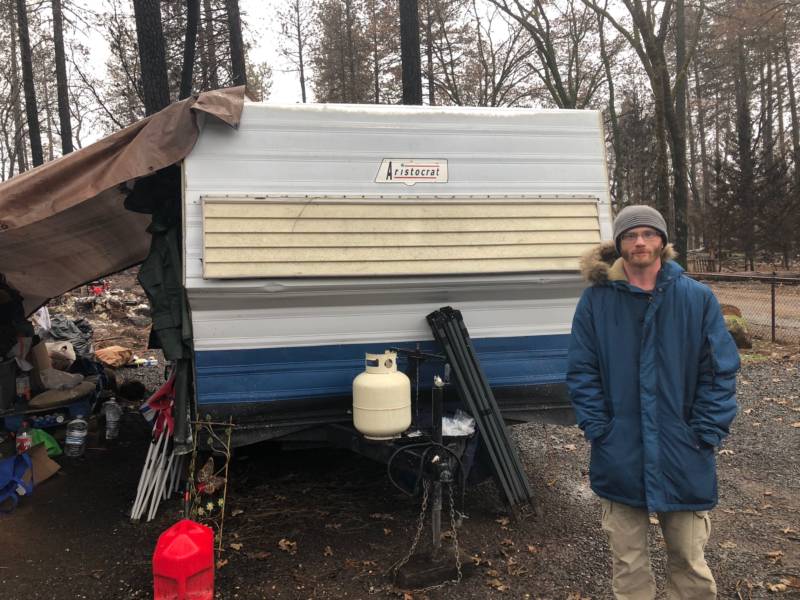In Butte County, officials are reversing course on a decision last month to let people live in tents or RVs on properties still covered in debris from houses that burned in the Camp Fire. Those residents are being told to move even if they're currently camped on their own private property and even if they have nowhere else to go.
They're being told to vacate not because of health concerns, but because they could lose disaster aid.
Both the town of Paradise, which took the brunt of the Camp Fire that killed 86 people in December, and the Butte County Board of Supervisors repealed their ordinances on Monday, which would have allowed people to stay camped on their properties. Officials said it's because the Federal Emergency Management Agency told them they could lose funding for debris removal if residents don't move.
"It's horrible. It's not logical," Paradise Mayor Jody Jones said.
"The constituents are correct; it is not logical to say you can live in a house next to a debris pile on the lot next door, but you can't live in a trailer 100 feet from the debris pile on an acre lot. It's not logical, but I don't make the rules," Jones said.

